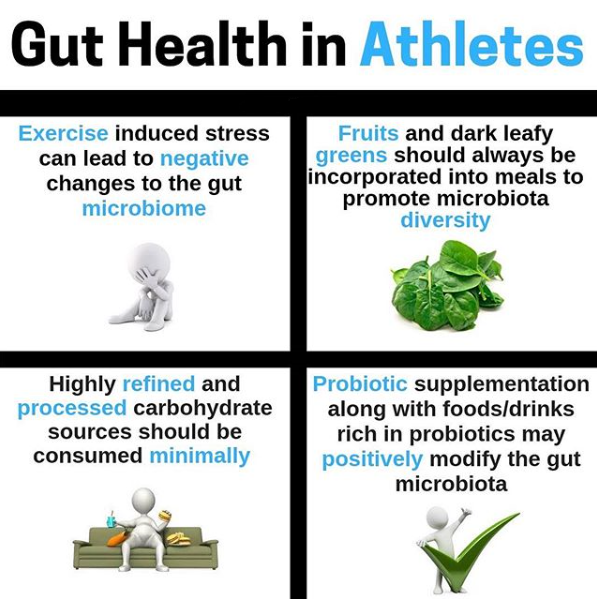
Health in Athletes
—
The gut microbiota has fundamental roles in human biology including metabolism, endocrine, neuronal and immune function. The stress from training can modify certain hormones along with the gut microbiome that can result in gastrointestinal disturbances, anxiety, depression and underperformance. It was also shown in mice models that exercise induced stress exacerbated intestinal inflammation through changes of certain gut organisms.
—
To ensure that we maintain normal gut function, we should always strive to get our foods from whole sources. Dark, leafy greens should always be included in meals and highly refined and processed carbohydrate sources should be minimized.
—
Probiotics, either from food, drinks or supplements, can be effective to ensure a proper gut microbiome. There is now a reasonable amount of evidence that consuming probiotics regularly may help with proper gut function in athletes. However, specific recommendations on strains and dosages have not been established.
—
Eating for athletic performance doesn’t always go hand in hand with eating for overall wellness. Sometimes it’s easier to eat fast food or packaged processed foods to fit our calories/macros than it is to prepare proper meals. While this may be acceptable on a minimal basis, our goals should be to prepare meals around whole food sources.
—
For a more dense and in depth explanation, check out
Clark, A., & Mach, N. (2016). Exercise-induced stress behavior, gut-microbiota axis and diet: a systematic review for athletes. J Int Soc Sports Nutr. 13:43
